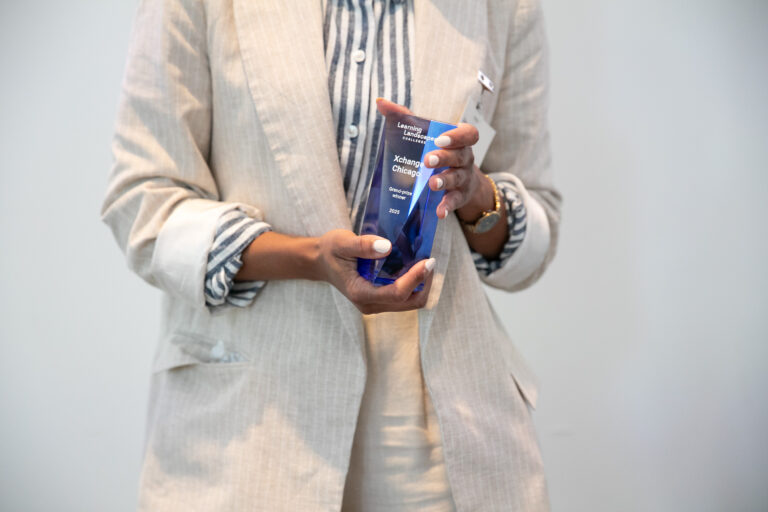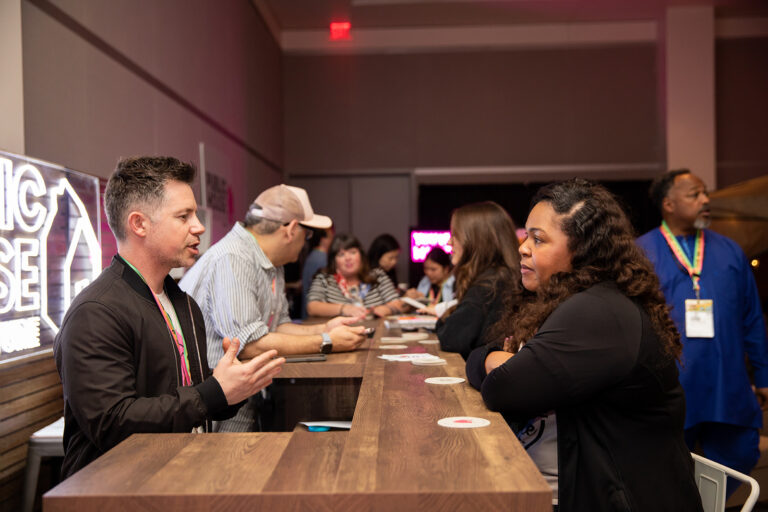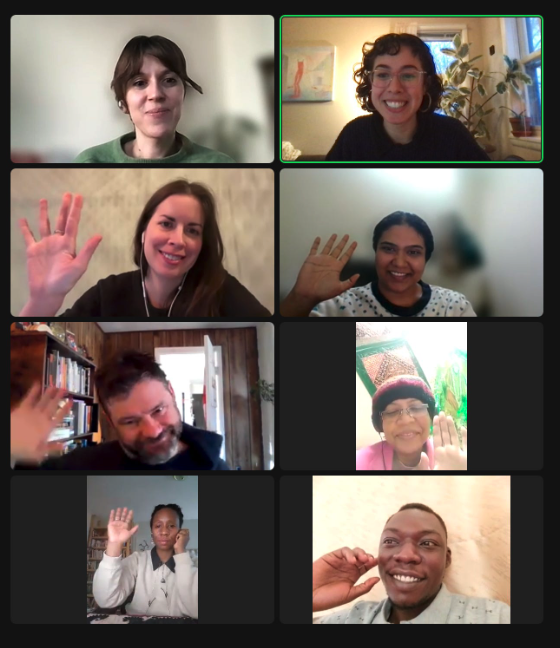Artificial intelligence is forcing us all to ask fundamental questions about what kind of world we want to live in—and what kind of future we imagine for our communities and loved ones. Workers are navigating new terrain, wondering whether AI will enhance their work or displace them entirely. Artists are questioning how their contributions will be valued and whether their intellectual property will be protected. And all people are grappling with new frontiers of security—from driverless cars to automated decisions about credit and lending—which demands that we hold those building and deploying AI to the highest standards to protect people.
At Siegel Family Endowment, we’ve long believed that technological change must be accompanied by intentional efforts to ensure it includes and improves the lives of all people. That’s why today, we’re proud to announce our commitment of $1 million to join Humanity AI, a broad coalition uniting leaders in philanthropy to invest in a more inclusive, prosperous future in which AI is shaped by and for the people.
AI: What We Make It
The truth is that AI is neither poison nor panacea. It is and will be what we make it. Too often, AI feels like something that’s done to us, not with or for us. We’ve seen how the tech industry’s “move fast and break things” approach to innovation has created deep, lasting harm that people are left to deal with—at their jobs, in their homes, and within their communities.
The central question we face right now is this: Will we accept a future where AI is solely designed to increase industry profits, or will we invest in a future where AI is created with and for people?
Why Humanity AI
Humanity AI asks the important societal questions prompted by the sea of change that AI has sparked: Who creates these models, and who will govern them? Will data used to train AI support or devalue people’s work? How will AI affect the security of our families and communities? And how do we reconcile AI’s enormous demands for electricity, water, and computing power with our broader environmental and infrastructure challenges?
The coalition addresses these questions through three strategic priorities:
- Talent. Expanding the group of people who make key decisions about how AI is created and used.
- Public voice. Supporting organizations that bring people together to positively influence AI’s future, ensuring those in power cannot ignore the voices of affected communities.
- Public good. Creating public goods—from datasets to computational power—that are owned by people, expand access to and control of AI, and establish clear rules to prevent its most harmful applications.
“At Siegel, we’ve always believed that technological change must be intentional and inclusive—that it should expand opportunity rather than concentrate it,” said Katy Knight, President and Executive Director of Siegel Family Endowment. “AI is reshaping the systems that determine whether people can access good jobs, quality education, and essential services. We’re joining Humanity AI’s advisory board because we believe this moment demands that we work collaboratively to ensure these transformations serve all people, especially those who have historically been left behind by technological progress.”
Our Commitment and Aligned Grantmaking
This partnership represents a natural extension of our work at the intersections of learning, workforce, and infrastructure. As AI continues to reshape education systems, labor markets, and our public infrastructure, we have both an opportunity and an obligation to ensure these transformations enhance rather than undermine equitable access to opportunity.
Joshua Elder, Vice President and Head of Grantmaking, added, “This is an opportunity to move in step with our peers—all of whom are making their own grants to address AI’s societal implications. The challenges posed by AI are too complex and far-reaching for any single foundation to tackle alone. This coalition allows us to learn from and build on each other’s work while maintaining our individual grantmaking strategies.”
In addition to our $1 million commitment to Humanity AI, we will continue making aligned grants that support organizations working to democratize AI development, strengthen worker voice in technological transitions, and build public interest technology capacity. Recent grant investments include over $10M of cumulative funding to systems builders, such as Public Interest Technology University Network, the Public Interest Tech Fund, and All Tech is Human; research institutions including Harvard Law Center for Labor and a Just Economy, Center for Democracy and Technology, and Aspen Digital; and AI product builders such as Upwardly Global and Quill.org.
These investments will focus on ensuring that communities most affected by AI have the resources and platforms to shape how these tools evolve.
A Collaborative Path Forward
We know that philanthropy is strongest when working in collaboration, and right now, there is an opportunity to come together, imagine, and support new ideas about what our future with AI can be. We’re excited to work alongside the Humanity AI advisory board and other coalition members to ensure that AI is developed in ways that protect and enhance human creativity, labor, and security.
AI will have far-reaching impacts, affecting every community we support and every issue we’re working to address. Now is the moment to build a more human(e) future for AI—one that works for people. We invite others who share this vision to join us in this critical work.
Learn more about HumanityAI and get in contact through the Stay Connected button. Additional media coverage below:
- Foundations want to curb AI developers’ influence with $500M for human needs
- Exclusive: Big Philanthropy teams up to take on Big AI
- Foundations want to curb AI developers’ influence with $500 million aimed at centering human needs
- Foundations want to curb AI developers’ influence with $500 million aimed at centering human needs





